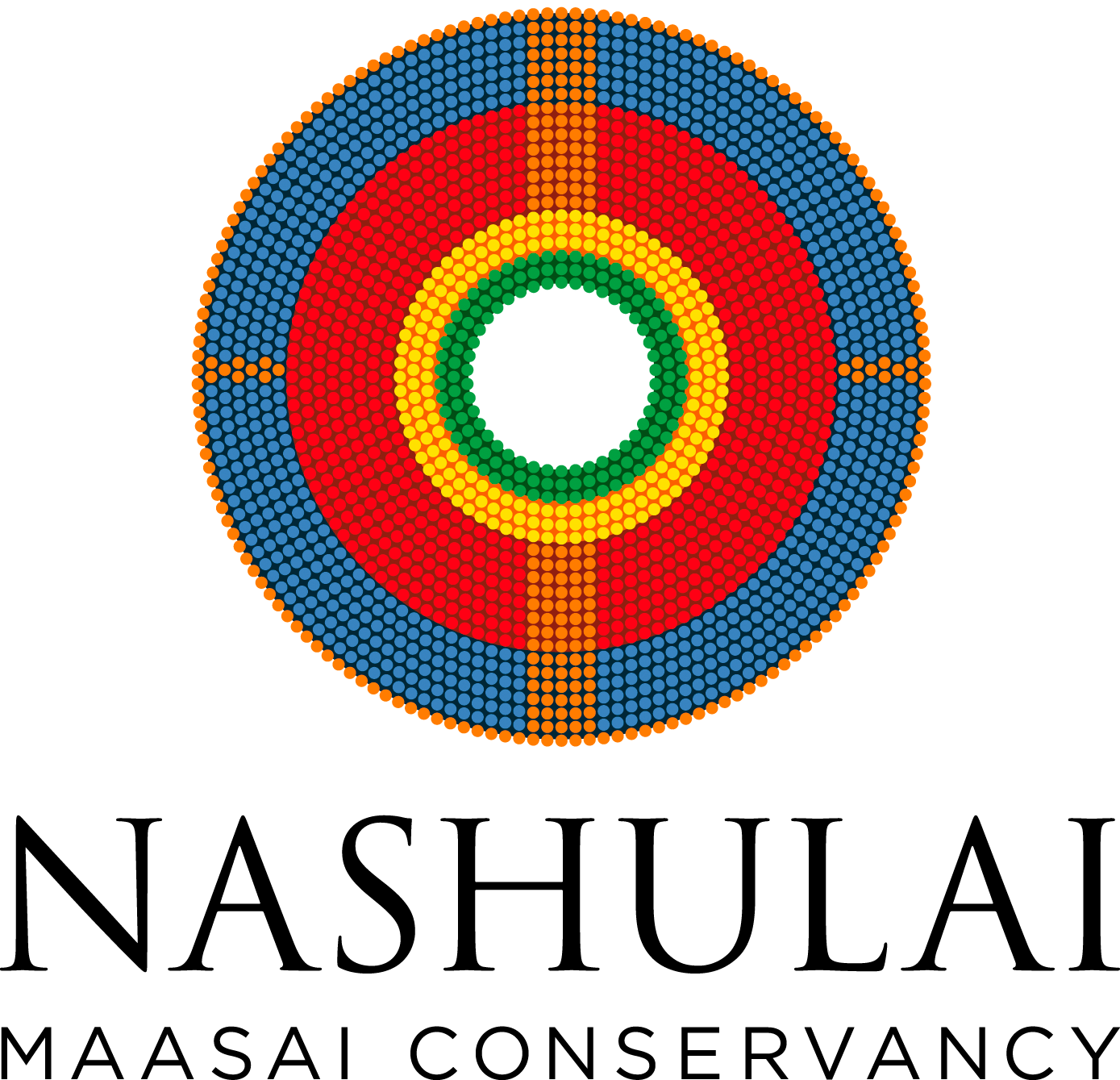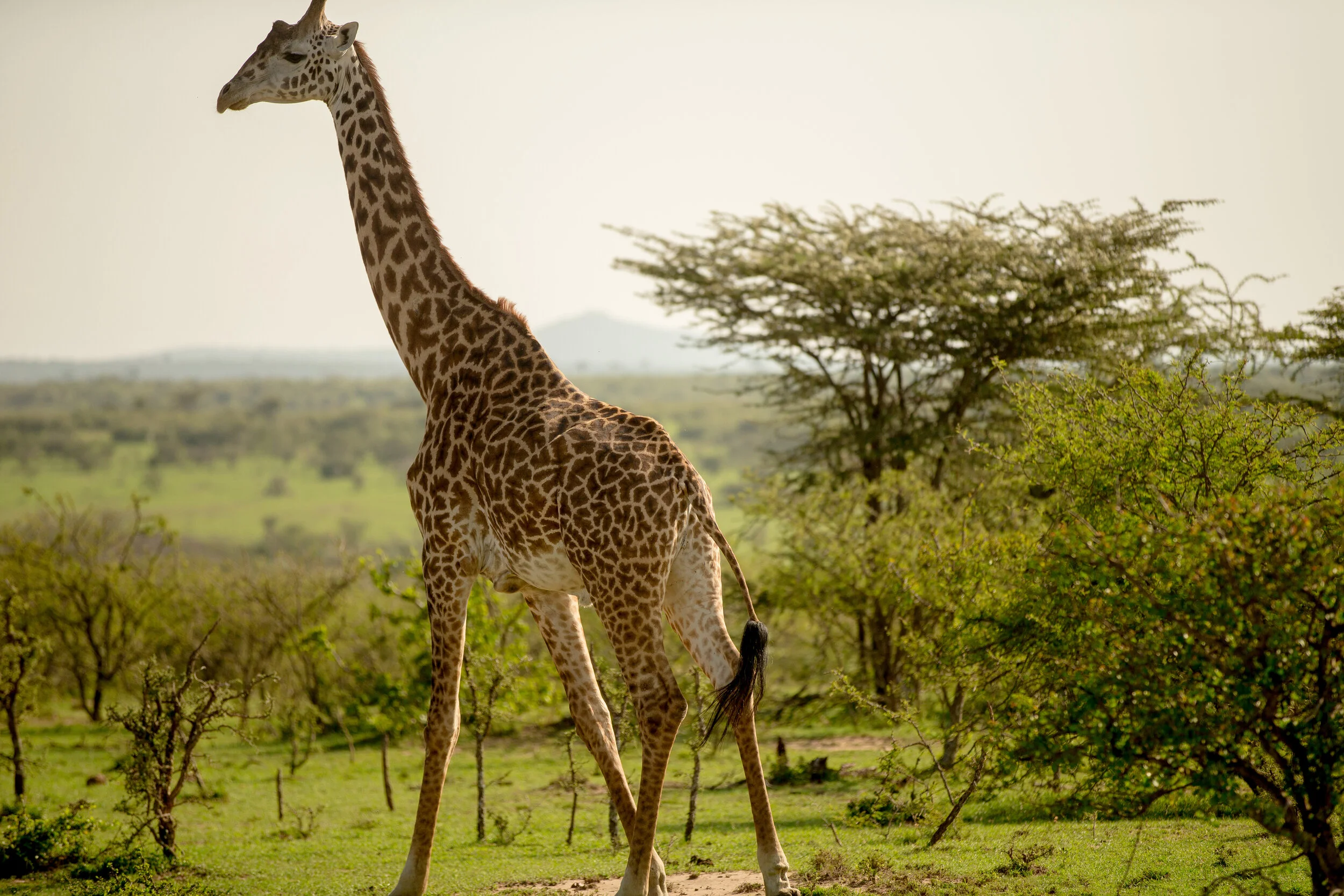As featured on the BBC News
A Place of Hope for Now and for the Future
Nashulai is a bold and enlightened new model for conservation in a 21st century facing catastrophic species loss, cultural extinction, growing poverty and global climate change.
Our interconnected and holistic model is: Conserve Wildlife – Preserve Culture – Reverse Poverty. Each dimension is profoundly related to and dependent for its success on the others.
At Nashulai we’ve shown that humans and wildlife can again coexist here to the benefit of the land, wildlife, and people. We’ve been stewards of this beautiful land for centuries; our ancestors, stories and practices are woven into our way of being on this land; we understand the relationships critical to its prosperity. In the face of a rapidly changing world, we know we can do a better job protecting our increasingly ecosystem than anyone else.
To quote the Journal of Applied Ecology (2016): "Wildlife has been in free-fall across most of Africa. Only local people can reverse the downward spiral.”
And we know that, given the chance, through our traditional knowledge in combination with leading-edge science both humans and wildlife can prosper.
Ancient, Proven Wisdom for Present Challenging Times
To really understand our model, its not that we are the first conservancy in the Maasai Mara, its that we’re the first Maasai Conservancy in the Maasai Mara. Now what does that actually mean? The community says on the land that we’ve owned and lived on in sustainable balance with wildlife for centuries. This is the opposite of traditional conservation models where local people are displaced from their land.
In Maasai territories we even talk about conservation refugees and conservation apartheid where vast tracks of land are set aside for wildlife (and high end tourism). Instead of leaving our land we set out to band together and form our own Conservancy. In the very genesis of this model there is a profound commitment to making this work.
This is the land where the bones of our ancestors are buried. This is the land where we have lived, where we have loved, for centuries. This is OUR home and the home of our children. The Nashulai model has a profound human commitment to making this work. There’s also fundamentally important traditional knowledge about how to make it work. We Maasai have lived in these lands, grazed our herds, told our stories, raised out children, and lived in balance with the other “natural citizens” of this extraordinary ecosystem. We know this land, we know its rhythm and realities. We love this land. We are its rightful stewards.
And so while we bring an ancestral knowledge and the lessons of the centuries our model is also absolutely an enlightened 21st century approach advocated for and confirmed by the leading edge of ecological science.
Across our 5000 acres, we’ve already proven that the communal action of an indigenous people can accomplish. It is because of our traditional knowledge that we’ve regenerated our ecosystem so quickly. We abandoned our colonial-era fenced-in plots of land, pulled down the fences to reopen the ancient migration corridor. We’ve returned to our traditional seasonal and rotational grazing schedule and, replacing large herds with small ones, have this summer brought back a hardy, indigenous cattle breed to restore the grasslands and reduce human-wildlife conflict. And we did this collectively as a community, advised by our respected Committee of Elders. All this was achieved in just 5 years. We are a living laboratory to test new ideas. We see ourselves as a epicenter for a transformation that goes far beyond our own borders. We’re inspiring, training, and influencing others. We want to be an inspiration through Maasai lands and beyond.
At Nashulai we are not only regenerating our land but our culture as well. We say: “It is impossible to keep the future of the Maasai alive without keeping our past alive. If we cut the roots we will wither away.” We are building a Stories Café –Netii Apa in Maa, or “Once long long ago”—the phrase that begins every one of our stories—where the Elders can find ways to preserve and record the old wisdom and oral language which are fast disappearing.
It is through the empowerment our community has gained in these few short years --from conserving our land and wildlife and preserving our culture-- that we will break the back of poverty. Our community spirit is remarkable: with the modest but real money from the land-lease payments that the Conservancy is paying to its members, we set up a bursary fund for school uniforms and other needs that are required for any child attending secondary school (without them they cannot go to school). Through our first generous donors, we’re creating employment and schools. We built a water system to give clean water to every boma in our 5000-acre conservancy. The success of Nashulai has already brought incremental benefits to 3000 people, and we are working tirelessly to increase that number. The restored grasslands and our plans for river and forest restoration will benefit wildlife, livestock, and humans alike.
And we are looking to our future. We want wildlife and humans to prosper, to protect our indigenous knowledge while educating our children in modern science, to empower both our men and our women to bring pride and prosperity to all. Former poachers have been rehabilitated to work as Nashulai Rangers to battle poaching and protect our community’s wildlife resources. Our warriors of tomorrow are learning science and technology. Our elders are recording their oral histories and knowledge so it can be shared. Our boys and girls are becoming educated. And our Nashulai model is spreading.
Spreading Far Beyond Our Boundaries
The conservancy has gained popularity in the Maasai Mara region and beyond including attracting local and international media because of the vision and mission statements of conserving wildlife and the environment, preserving the local Maasai indigenous culture with aim of reversing poverty. Our women/girls empowerment and education programs have created a lot of attention within the local communities and beyond. The training centre alone receives students training in various Tourism and Hospitality as well as conservation from all over the country now because of the popularity of Nashulai Maasai Conservancy.
We have already inspired 2 neighboring communities to establish conservancies of their own using the Nashulai model and have been providing guidance at their request. Or respected and knowledgeable Warden Joseph Kosikir (a winner of the 2018 African Ranger Award) and his rangers have been offering rangers training, combing traditional Maasai knowledge with study of the latest in conservation management science, and welcoming all guests and visitors to explore the conservancy with them.
Nashulai is a living laboratory for a new, exciting model of conservation and community empowerment, and we have succeeded beyond our wildest expectations!
We invite Maasai throughout East Africa to Nashulai to reconnect with their past and help chart our future.
We invite the entire world to learn from and partake in the conservation and sustainable development method of the future.
Please come and understand our vital Nashulai model for yourselves. A place of hope for the future –for us, and for the world.
Ashe oleng!
Thank you!





